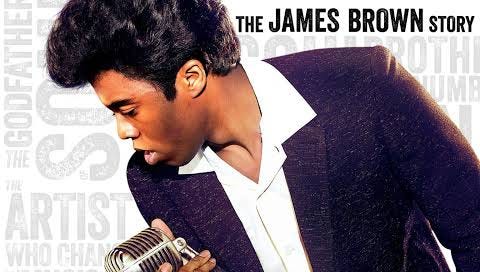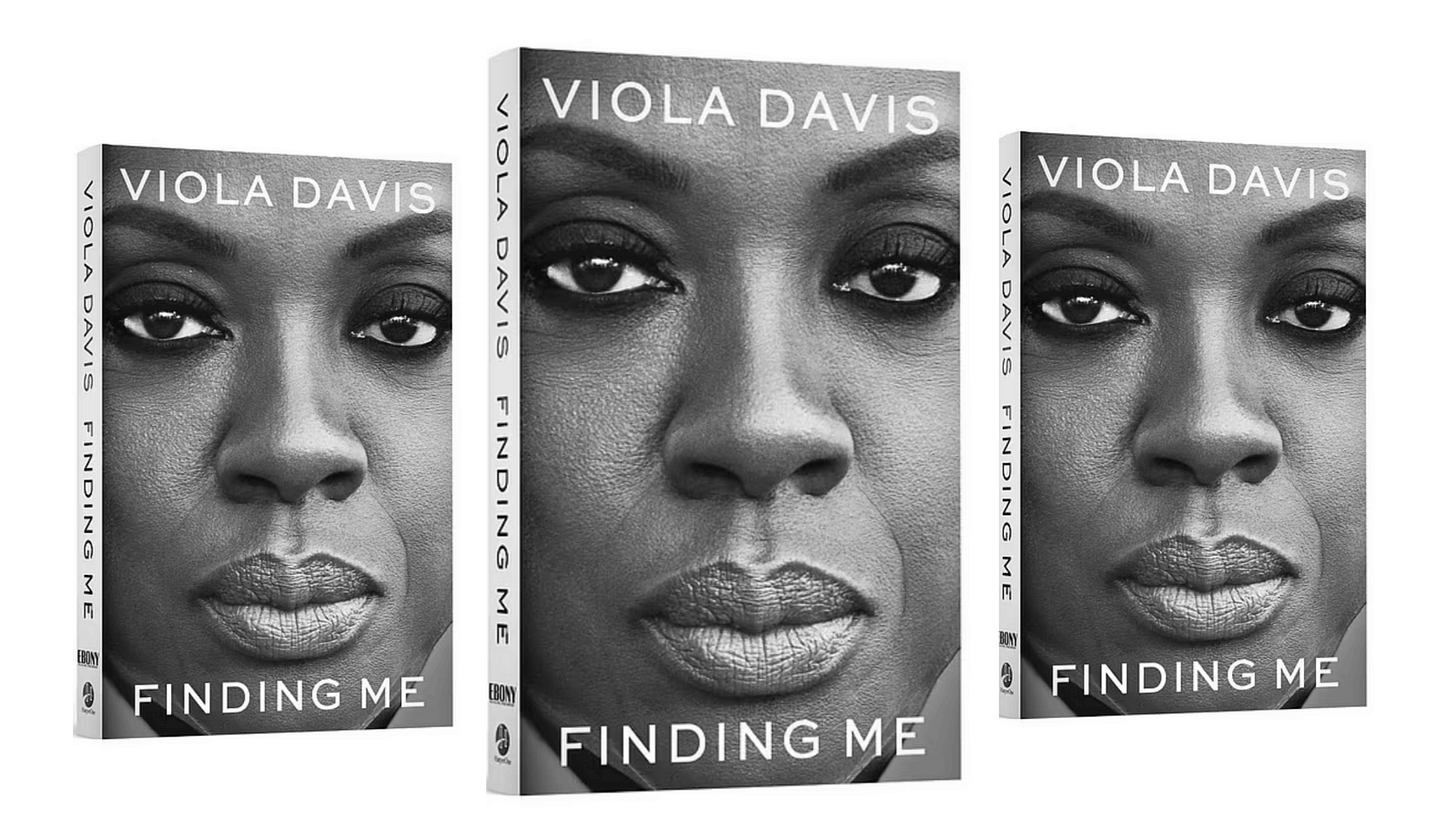Film: Get on Up (2014)
Written by: Jez Butterworth, Jon-Henry Butterworth, Steven Baigelman (does he like bagels? hahaha)
Directed by: Tate Taylor
Starring: Chadwick Boseman (James Brown), Viola Davis (James’s mother), Dan Akroyd (Jame’s agent), Nelsan Ellis (Bobby Byrd, James’s best friend)
Finding Me (memoir) by Viola Davis
Dear Lovers and Healers and Wonderers of Life,
I had a boyfriend years ago who asked me, when I broke up with him, “Who is going to make you happy?”
I told him, “I am going to make me happy.”
That was a wildcard, ay?
I longed to be alone at that time. Longed for it. I don’t mean “alone” without other people. I meant alone as in, “single”—not in an intimate romantic relationship/partnership. I did not fear being alone. I did fear liking it too much.
Our culture is built around marriage as an institution. Regardless of whether papers are signed or there is a ceremony in a church, there is an institution of masculine and feminine bonding and building a life together. There is a certain credibility given to it as being the most stable and “right” practice of living your life. But couplehood can be very draining, if you have not done enough inner work. I wanted to deal with my problems myself, and find what satisfied me and lit me up on my own terms.
This week, I watched a lot of artistic movies and then one stupid flick that was not art that my friend made me watch. (That one had Hugh Grant in it.) And I started to put some pieces together about love and true love, to see some threads that I find disconcerting and yet true at the same time about intimate relationships between men and women in our culture. As far as I understand, same-sex relationships, or pansexual relationships, are similar to heterosexual relationships, in that two people take on various roles to be in partnership with the other. But most of our culture presents the man-masculine, the woman-feminine, and so we keep teasing through the storylines to find some semblance of human truth.
First, I finished Viola Davis’s book Finding Me and I loved it so much. I felt I was talking to a friend, and her story pulled at my heart in some of the deepest, bravest, wondrous ways. What I was struck by especially was the amount of domestic violence Viola witnessed as a kid, with her dad consistently beating and abusing her mom. This wasn’t just a punch or a hand slap—this violence was of the “I-am-breaking-your-leg” literally-nature. But this wife and mother stayed with her husband. I don’t know if she saw herself having much of a choice. She had so many kids to raise, and no money to raise them, and perhaps she needed the partner for some semblance of financial stability.
Would I be able to love and forgive a father who repeatedly abused my mother? I don’t know.
Then I re-watched the film Get on Up about James Brown (2014). Chadwick Boseman does an amazing job, and I felt perturbed by the amount of attention that the Chalamet dude was getting for playing Bob Dylan last year, when Chadwick Boseman was certainly worthy of super-star status for playing James Brown. (Also, I can dance to James Brown, and I like his music a lot better than strawny-haired white guys.)
In Get on Up, Viola Davis played a battered woman who did, in fact, leave her husband. She plays James Brown’s mom, who is happy enough as James’s mom when he is a kid, but not happy in her marriage with his dad. James’s father is beastly toward her, and angry, and they have this mixed-up relationship where they are kissing and hugging and making love and then he is beating on her and she is trying to defend herself. She is not afraid of him, at least it seems—she fights back at him and she goes to the bedroom with him. But then one day, she leaves the house and doesn’t come back. James’s story (at least in the movie) is, “My mom left.” But that is not really the story, is it? His dad left him, too. His dad beat his mom. There was no money, there was not enough love, and she tried to take her son with her, but the father got out his shotgun and threatened her life if she took James with her. So she saved herself. James grew up and beat his own wife from time to time. (Where’d he learn that from, you think?) Years later, James’s mom shows up and James has to do his own manner of forgiveness, seeing his mother as a harlot and a trope rather than the abused survivor she really was.
Yesterday, I happened upon the YouTube recording of the hearing between Johnny Depp and Amber Heard that occurred in 2022. I hadn’t watched it when it was occurring—I did not have the stomach for it, but friends of mine did watch it and began to form their opinions of who was guilty and not guilty in that debacle called marriage. I watched about 17 minutes of Amber Heard giving testimony to Johnny Depp’s attorney, a woman in a white suit.
I’ve worked at two domestic violence centers, so I have some education about the way victims behave when they are in an abusive partnership. (I also have some knowledge about how systems work or don’t work to help victims and survivors.) The premise of this hearing was that Johnny Depp was accusing Amber Heard of negatively affecting his career and ability to make money because she’d said he domestically abused her. So this testimony was a lot of questioning of what Ms. Heard said, and whether she was credible or just making up stories about one night when Johnny allegedly held her down and did something to her with a bottle and smashed a phone to pieces.
I was following, I was following. Court rooms are like theater, and the two tend to intersect more than we would like.
More questioning ensued when Mr. Depp’s attorney presented an audio recording one of them had taken. In it, Johnny is saying he needs a break, and Amber is saying he needs to stay and have a conversation with her. She is adamant that he is giving up from having an important conversation to work on their relationship and he is saying he needs to escape to the bathroom, that he is exhausted.
The question from Mr. Depp’s attorney was, “Doesn’t this prove that you were not afraid of your husband? Listen to your voice and his voice on this recording. You are not scared of him when you are speaking to him this way.”
This was when Ms. Heard became more emotionally ruffled. She either sees that there is validity to the question, or she is unsure how to answer, or she is lying, or who knows what. We really don’t know. Litigation attempts to lead to truth but most attorneys just find a story and a claim and justify it with evidence, like any kid in freshman English writing a 5-paragraph essay.
What Amber Heard says in response to this recording was, “He was my husband. I wanted to talk to him, I was calling him back in the room to talk, because he was my husband and I loved him.”
And I stopped watching then and I am not sure if I’ll go back, because I am really not concerned about whether Amber Heard was telling the truth or not. What I know to be true is that women who are abused by their intimate partners often stay in their relationships. In fact, I was trained through many hours about how to answer calls from victims of domestic abuse, and we were explicitly told we had to have compassion for someone who chooses to stay, because it was more important to honor that woman’s power of personal choice than tell her what to do.
Women stay in abusive relationships for various reasons. Some people stay because they have children and they believe in the commitment of marriage, and believe they can make the sacrifice of daily or regular violence because they have children to care for, who need a two-parent home. Some women stay because they don’t have the money to leave, or a support system to take them and their children in. Some women stay because they are ashamed that they are being abused and don’t want to accept it as the ultimate reality. (Their abuser has good days, too, they will reason.) Some women stay because their understanding of love and relationships is toxic. They are trauma-bonded. They don’t know what clean and healthy love is like, and they don’t know how to be alone. They don’t know that true love is not dramatic, but consistent, stable, reliable, accepting, generous, kind, compassionate and communicative. They may not be able to imagine such a reality, because they have never seen it exist in their world. And perhaps they have watched generation after generation, and neighbor after neighbor, live in ways that are toxic and broken. As humans, we do what we have watched people do, usually. Unless and until we learn to wake up and live our own lives.
Once, years ago, a woman I’d met at a networking event told me she was going to divorce her husband, but he threatened to destroy her in court, so she stayed with him.
So gosh, what does all this mean?
I know from experience that women can be horrible, too, but sometimes their tactics are different than men’s. Women may use energetic or verbal violence rather than physical force. I have also seen women comply willingly in the shaming and abuse of one or more women—in various ways. We cannot readily assume a woman is innocent and a man is guilty, but the numbers of domestic abuse victims are disturbing, and we won’t see any significant peace, sacredness, and respect take hold until we teach about healthy relationships, healthy love, and the differences between love and partnership. Love is messy. Partnership—or relationship—is an agreement. The two have similarities, but are not one and the same.
If you read a lot of news and succumb to the spectacle that surrounds us every day, you may disheartened about pretty much everything, including love and its likelihood.
But when you get quiet and find yourself—which was Viola Davis’s point in writing her memoir Finding Me—you make your life your own. You follow your deepest desire; you cling to your faith; you ask for help and support; you navigate your challenges, and you rise and rise again. There is life and there is life and we have it today. We have it right now.
So if you’re feeling frustrated by love and romance in popular culture, or in your own life, I recommend watching Steven Soderbergh’s new film Black Bag to heal your love life. It is so effing awesome. It is so effing fun.
It is so the perfect kind of marriage, displayed on screen, that I have seen in a long, long time.
And it’s also just stylistically supercool.
Toodles,
Ms. Me for Today
The Saturday Vinyl Playlist
*The Vinyl is Out of Town Today
You can find my Black Bag digital playlist on Spotify here, tho.





